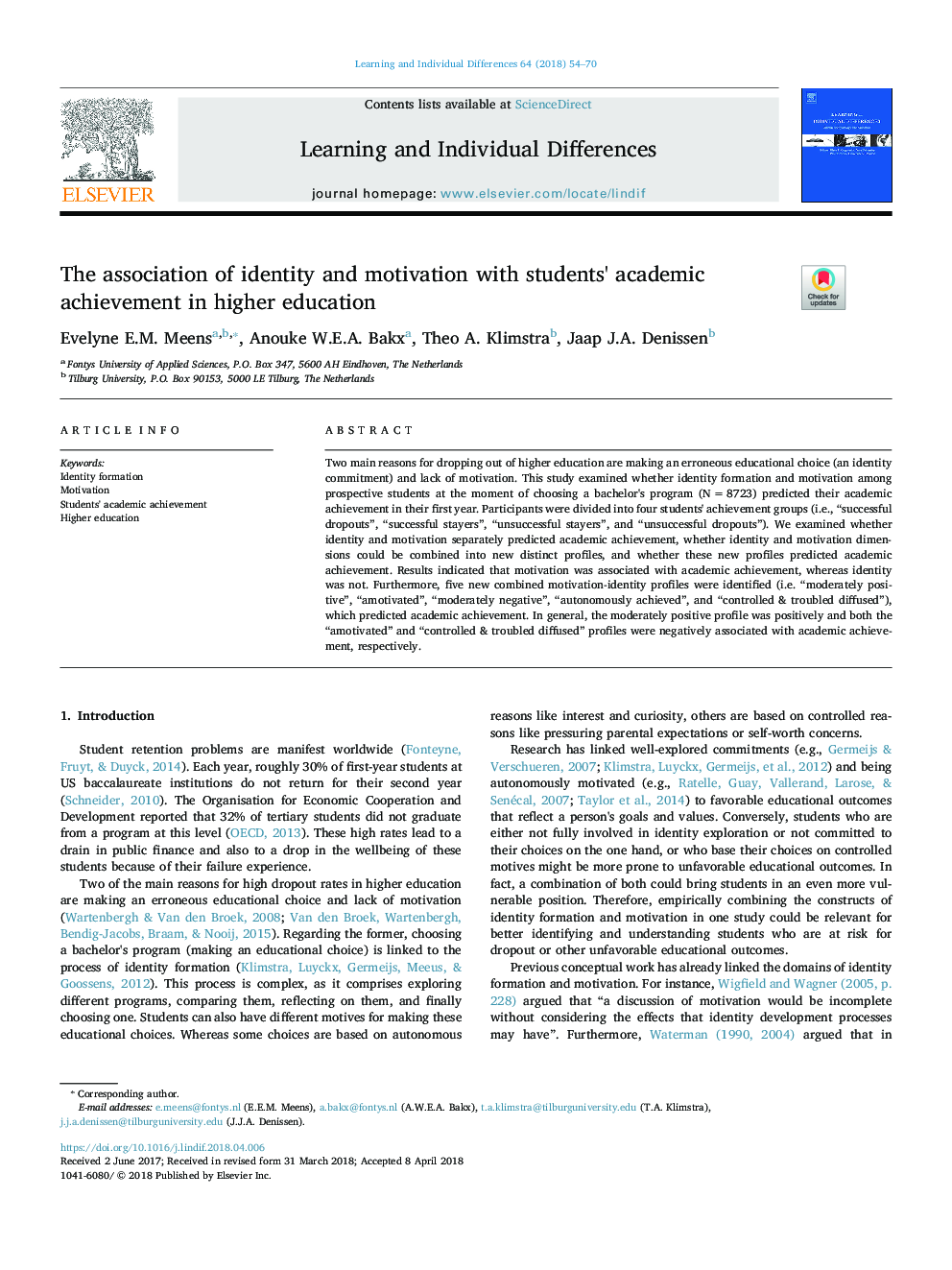| Article ID | Journal | Published Year | Pages | File Type |
|---|---|---|---|---|
| 6844357 | Learning and Individual Differences | 2018 | 17 Pages |
Abstract
Two main reasons for dropping out of higher education are making an erroneous educational choice (an identity commitment) and lack of motivation. This study examined whether identity formation and motivation among prospective students at the moment of choosing a bachelor's program (Nâ¯=â¯8723) predicted their academic achievement in their first year. Participants were divided into four students' achievement groups (i.e., “successful dropouts”, “successful stayers”, “unsuccessful stayers”, and “unsuccessful dropouts”). We examined whether identity and motivation separately predicted academic achievement, whether identity and motivation dimensions could be combined into new distinct profiles, and whether these new profiles predicted academic achievement. Results indicated that motivation was associated with academic achievement, whereas identity was not. Furthermore, five new combined motivation-identity profiles were identified (i.e. “moderately positive”, “amotivated”, “moderately negative”, “autonomously achieved”, and “controlled & troubled diffused”), which predicted academic achievement. In general, the moderately positive profile was positively and both the “amotivated” and “controlled & troubled diffused” profiles were negatively associated with academic achievement, respectively.
Related Topics
Social Sciences and Humanities
Psychology
Developmental and Educational Psychology
Authors
Evelyne E.M. Meens, Anouke W.E.A. Bakx, Theo A. Klimstra, Jaap J.A. Denissen,
